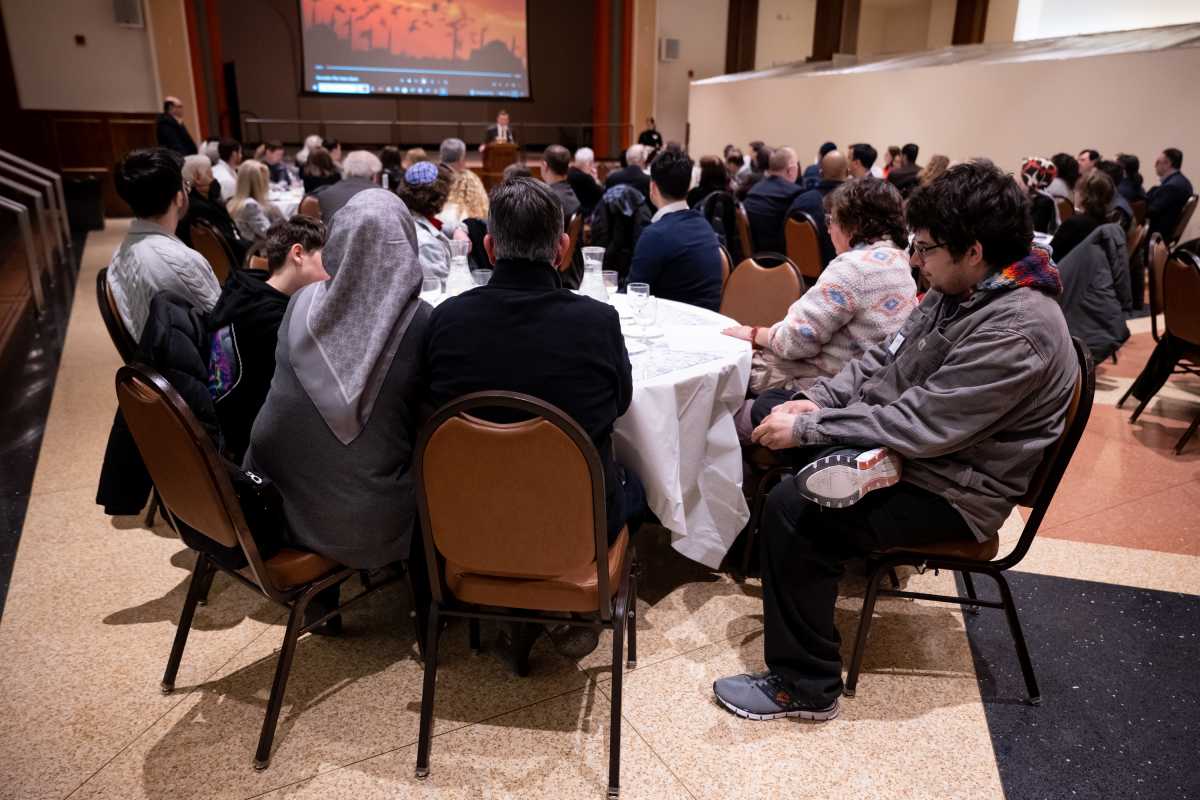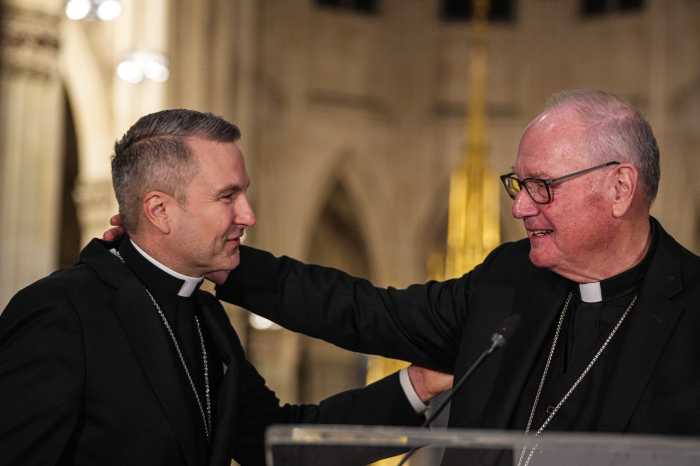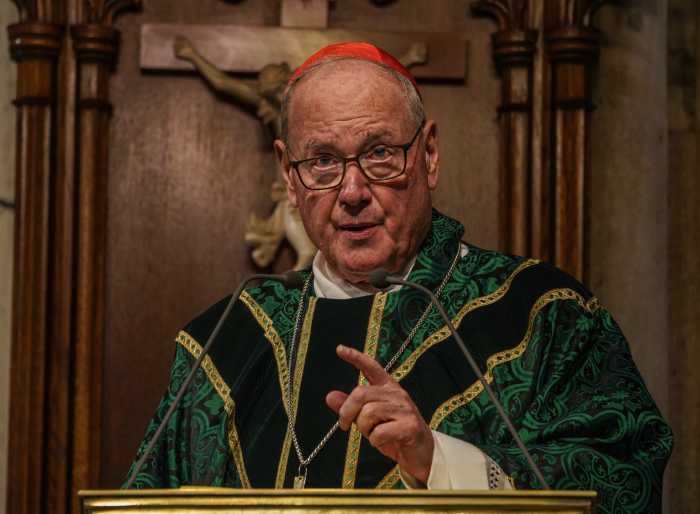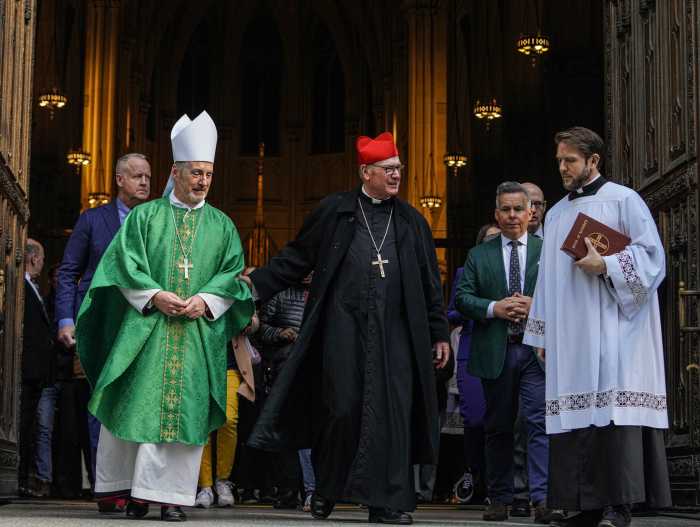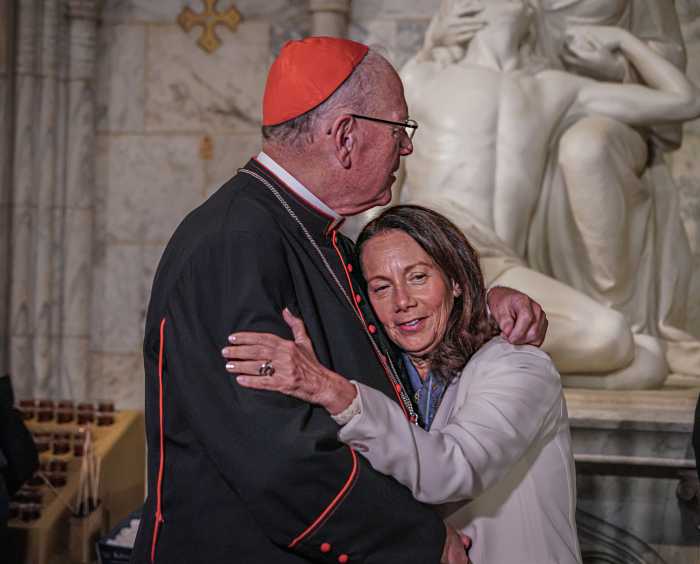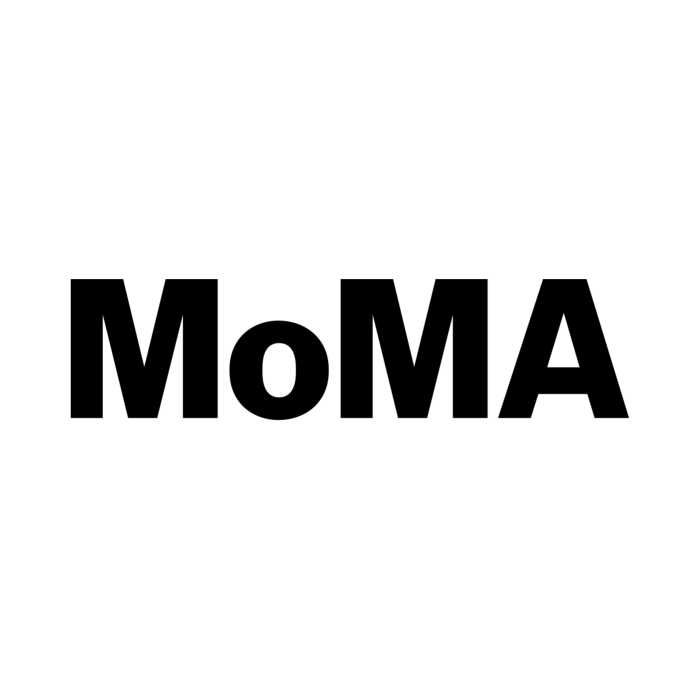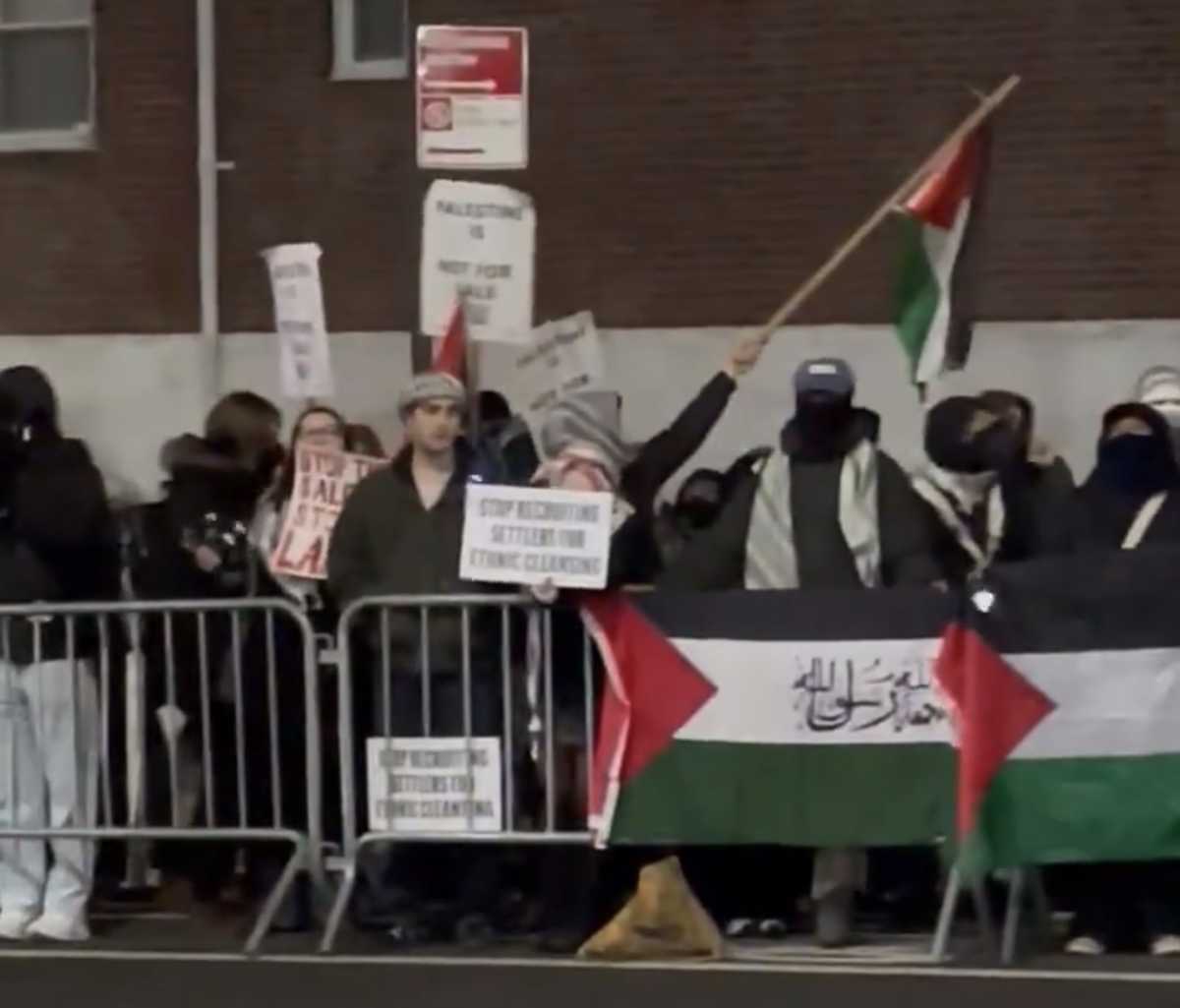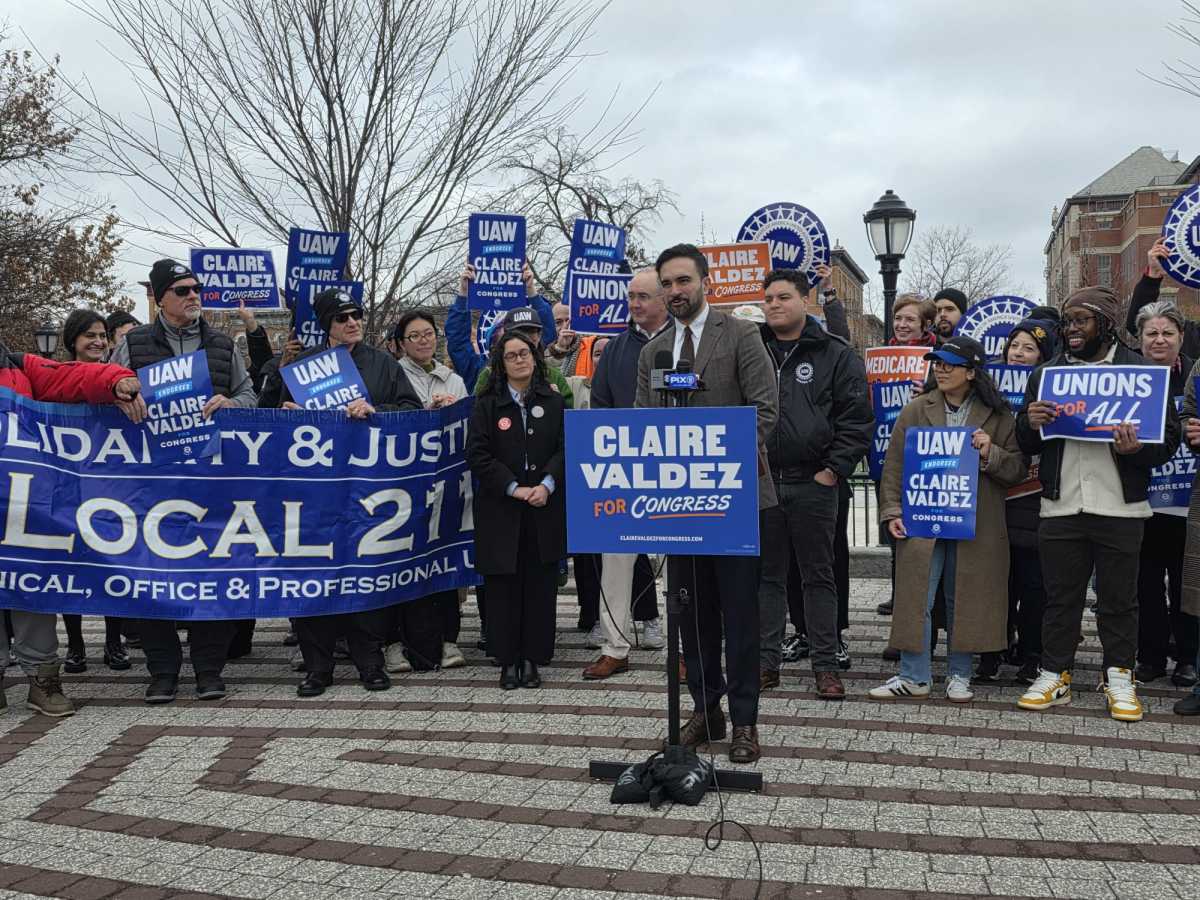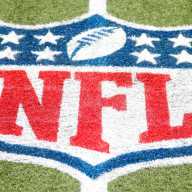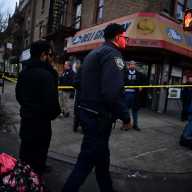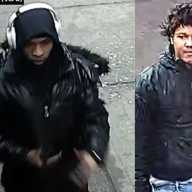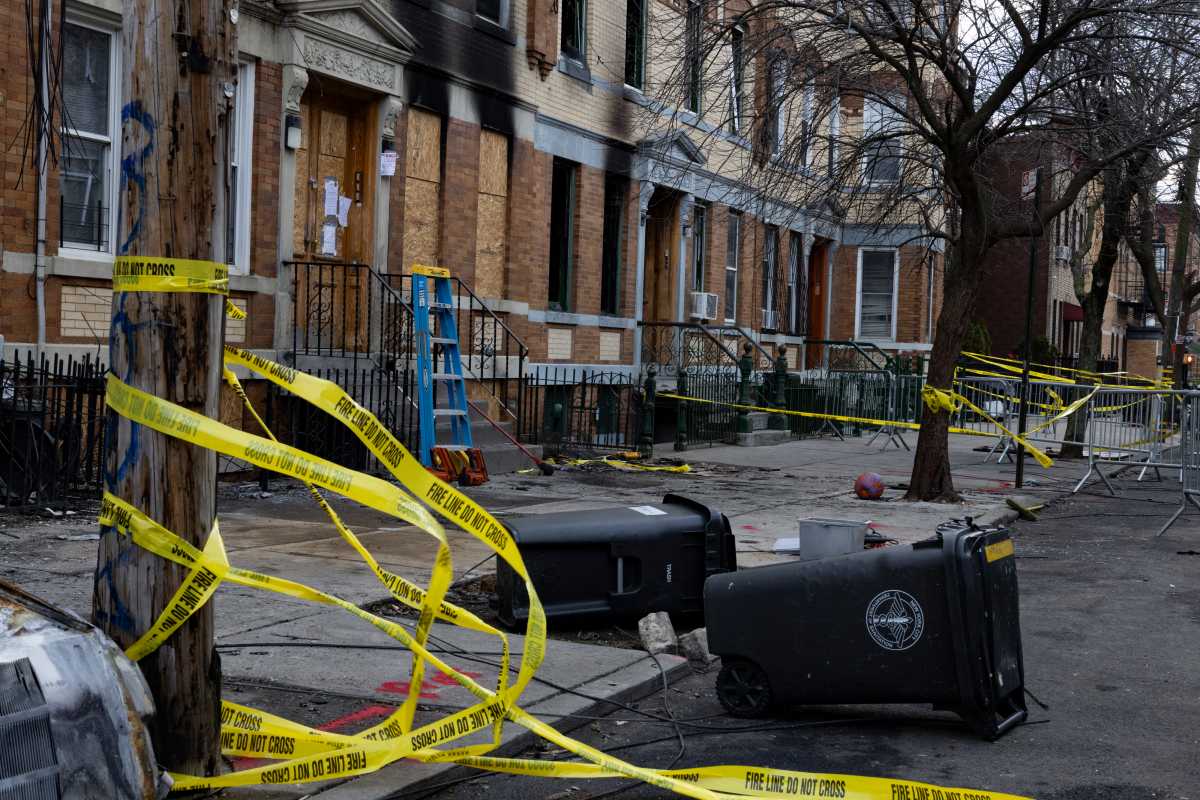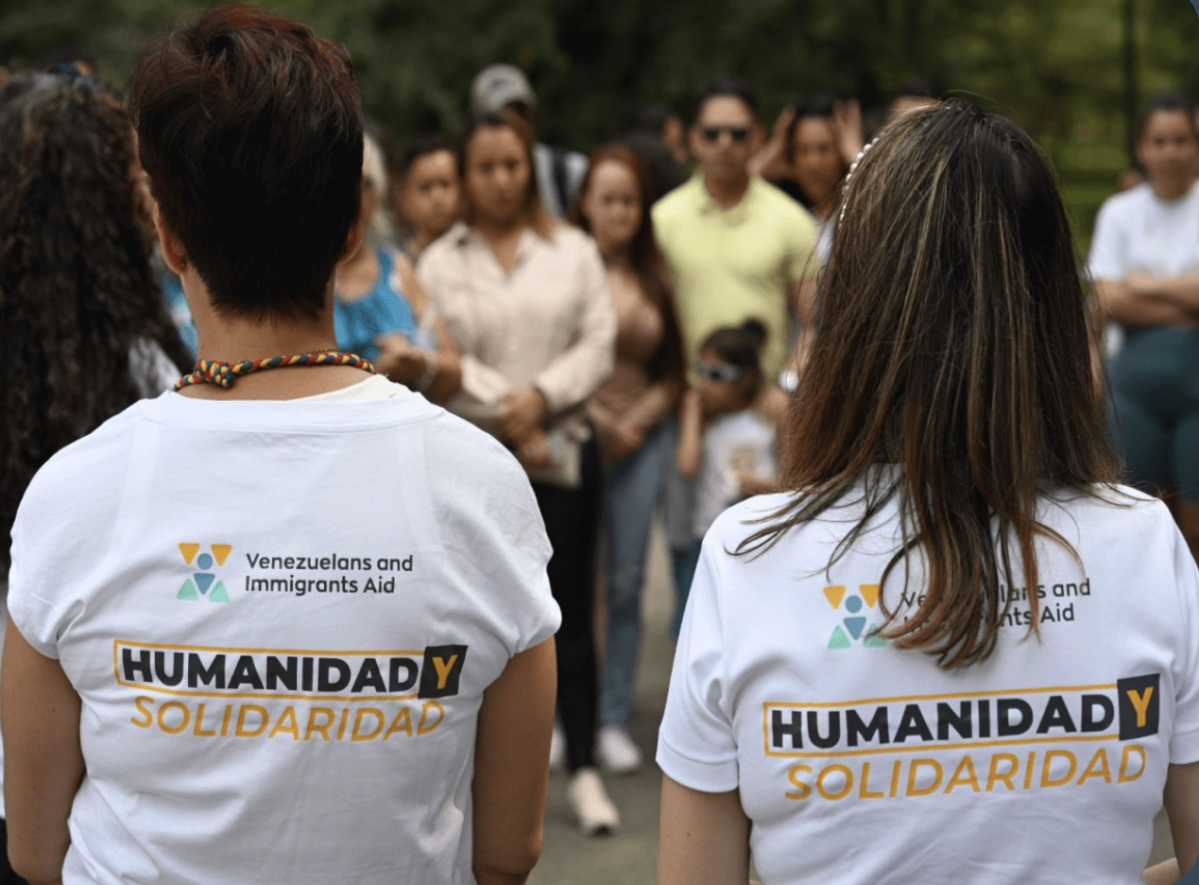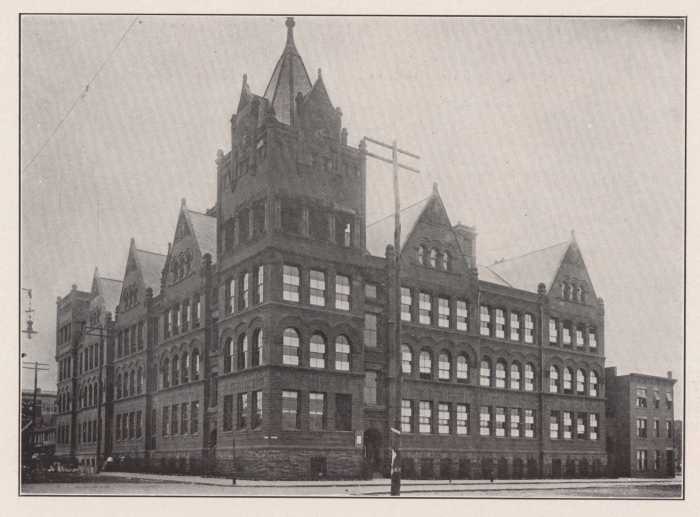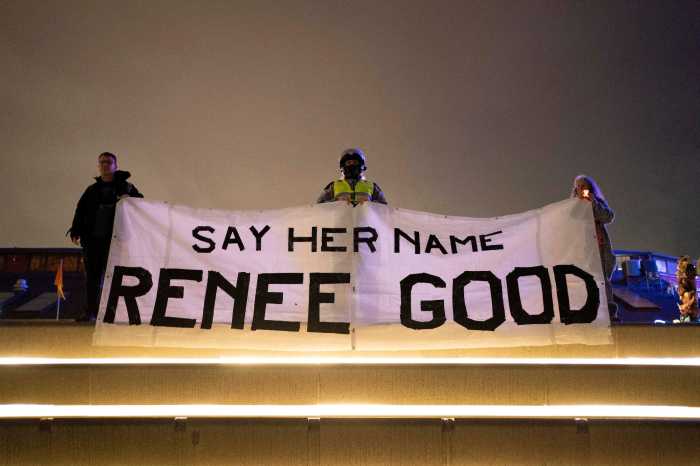While relations between the Muslim and Jewish communities are more strained than ever because of the ongoing Israel-Hamas war, Temple Emanu-El on the Upper East Side held an interfaith Iftar in collaboration with Peace Islands Institute (PII) on Friday following regular Shabbat Service.
Peace Island Institute and Temple Emanu-El have hosted Iftar dinners at the largest synagogue in the world for years, and about 100 guests of various faiths gathered in Temple Emanu-El’s Wise Hall to celebrate the fast-breaking evening meal that takes place at sunset during the holy month of Ramadan, when Muslims are not allowed to drink or eat from dawn until sunset.
The event was a celebration of unity and diversity, peace and solidarity, while breaking bread during the holiest month on the Islamic calendar.
Temple Emanu-El’s Senior Rabbi Joshua M. Davidson told amNewYork Metro that building bridges between Jewish and other faith communities was always important, but celebrating different faiths, cultures, and ethnicities was more crucial than ever.
“In moments like this, when the political division is so intense, when there’s war and bloodshed, the world around us coming together to hold on to each other to say that we will be there for each other, it’s just critical,” Davidson said.
PII’s mission is to promote peace, love, respect, humanity, integrity, welfare, and understanding while facilitating a forum of mutual respect and collaboration. Emre Celik, executive director of Peace Islands Institute New York, said events like the interfaith Iftar at Temple Emanu-El were a win-win for everyone.
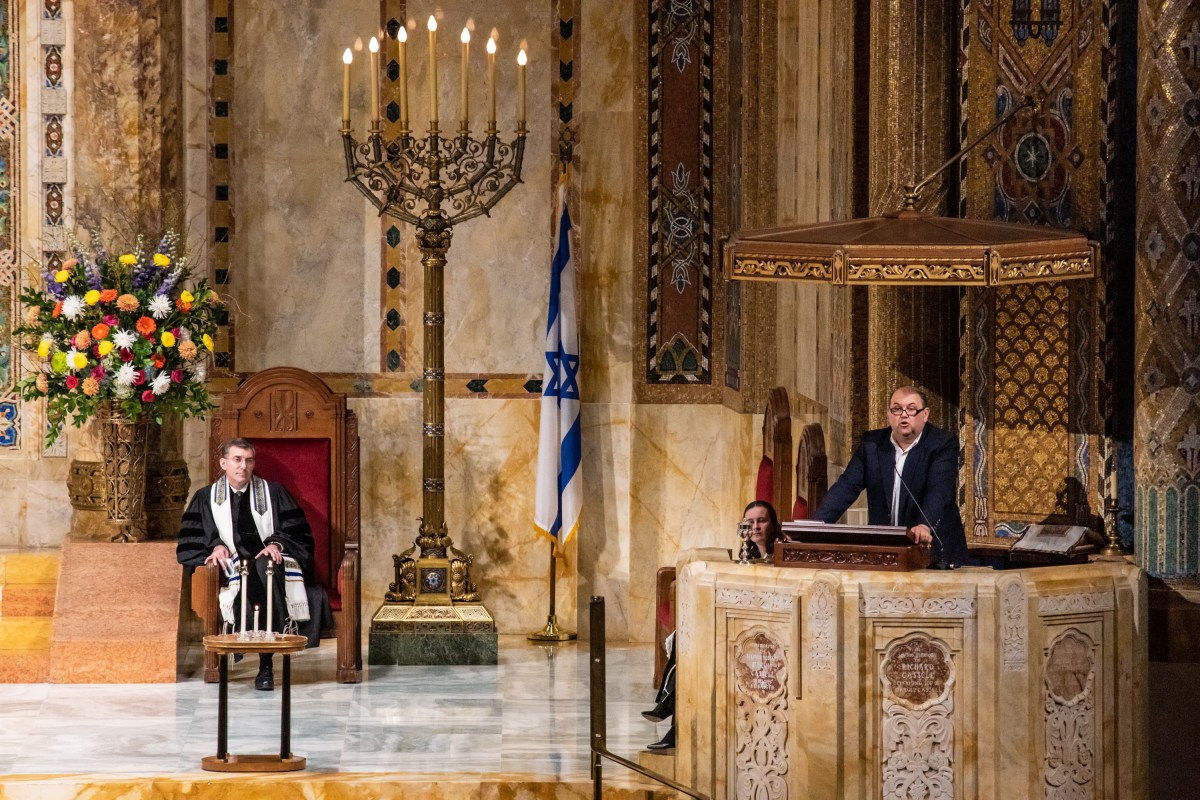
“The importance of coming together is critical in overcoming prejudice and misunderstanding,” Celik told amNewYork Metro. “This is something that both our institutions encourage and live up to. Breaking bread is a great opportunity, and what better way than to do it in the holy month of Ramadan?”
Celik said engaging people in dialogue was essential in overcoming ignorance and stereotypes.
“When people start talking, a lot of those things melt away. So engagement is critical,” Celik said. “I’m someone that’s been involved in these types of activities for more than 20 years, and I’ve seen many people leave emotional as a result of finding out that everything that they knew about the so-called ‘other’ was wrong.”
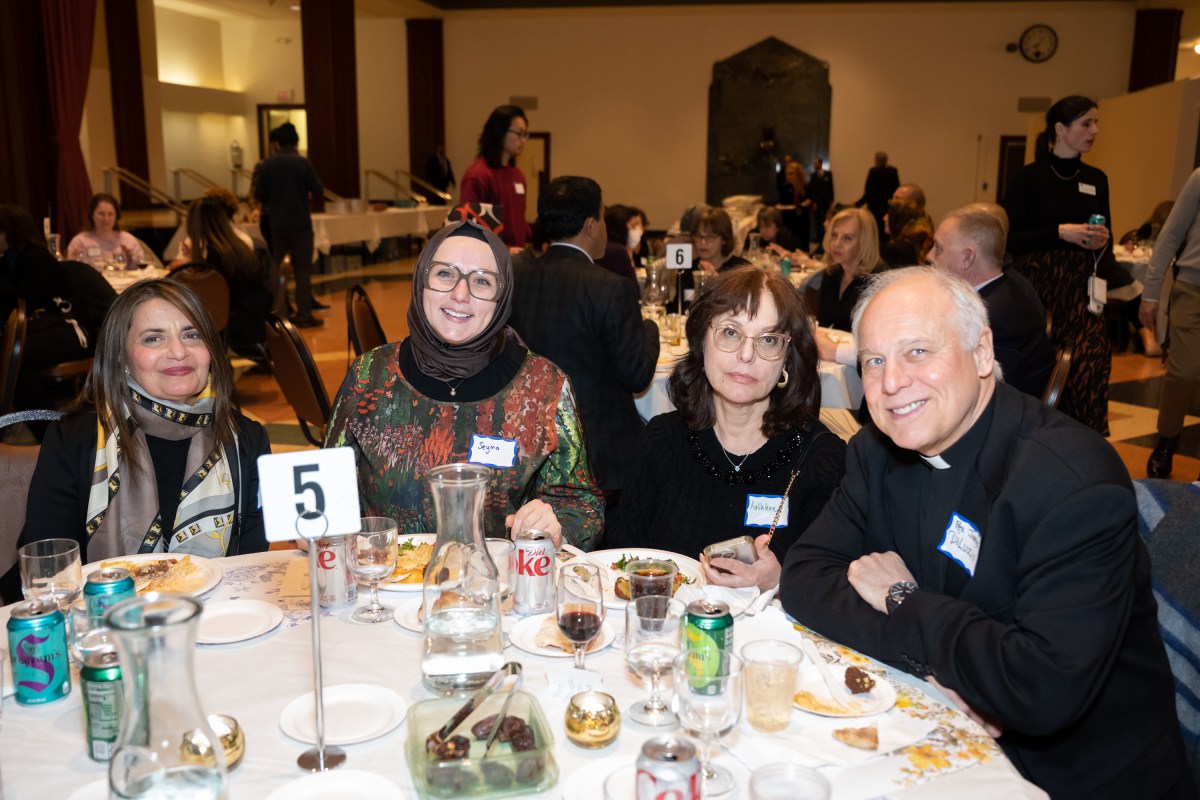
When the sun officially set at 7:12 p.m., Rabbi Davidson delivered a blessing, followed by a call to prayer displayed on a large projector. The Muslim faithful then retreated to the stage for the night prayer before breaking their fast and enjoying the buffet-style dinner.
Dr. Alyssa Cady has been the director of Temple Emanu-El’s new Center for Interfaith Dialogue since 2023. The former NYU religious studies professor shared that the interfaith event was community building “above all else.”
“It’s so important to bring people together,” Cady said. “I am just so overjoyed and grateful to see the overwhelming support, excitement, and passion for people of different faiths to get together in New York.”
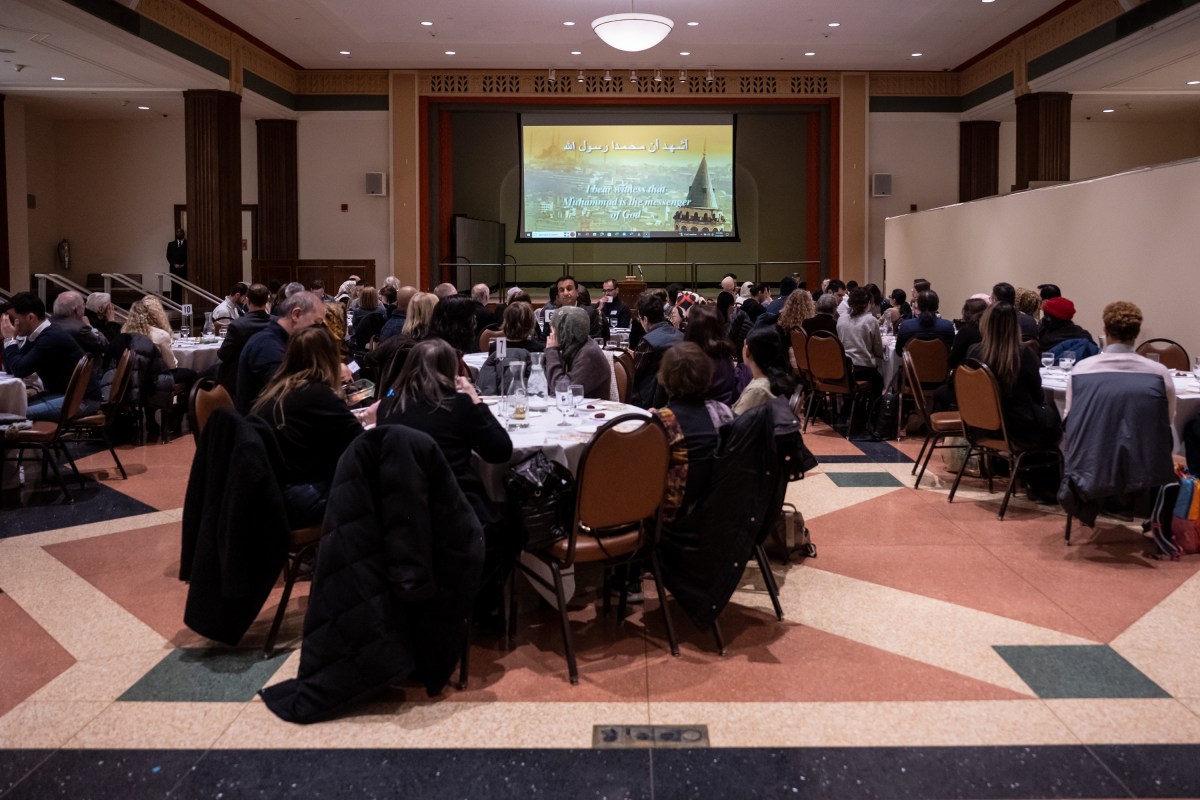
Cady shared that her center has “exciting” programs in the works, like an interfaith concert and wellness retreat.
“I would also love to get people together to travel internationally to places of overlapping faith histories [and] faith traditions,” Cady said. “It’s such a wonderful expression of the sense of community in the world and the joy that we can all have when we come together.”
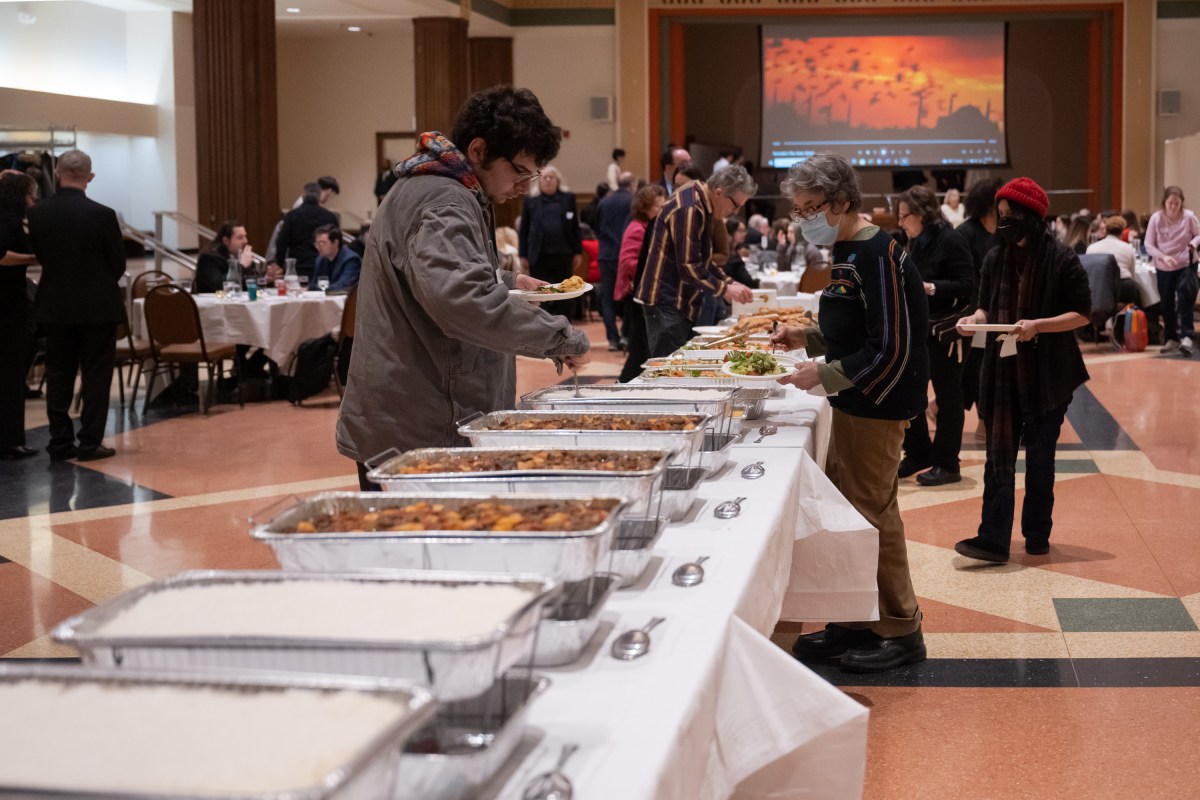
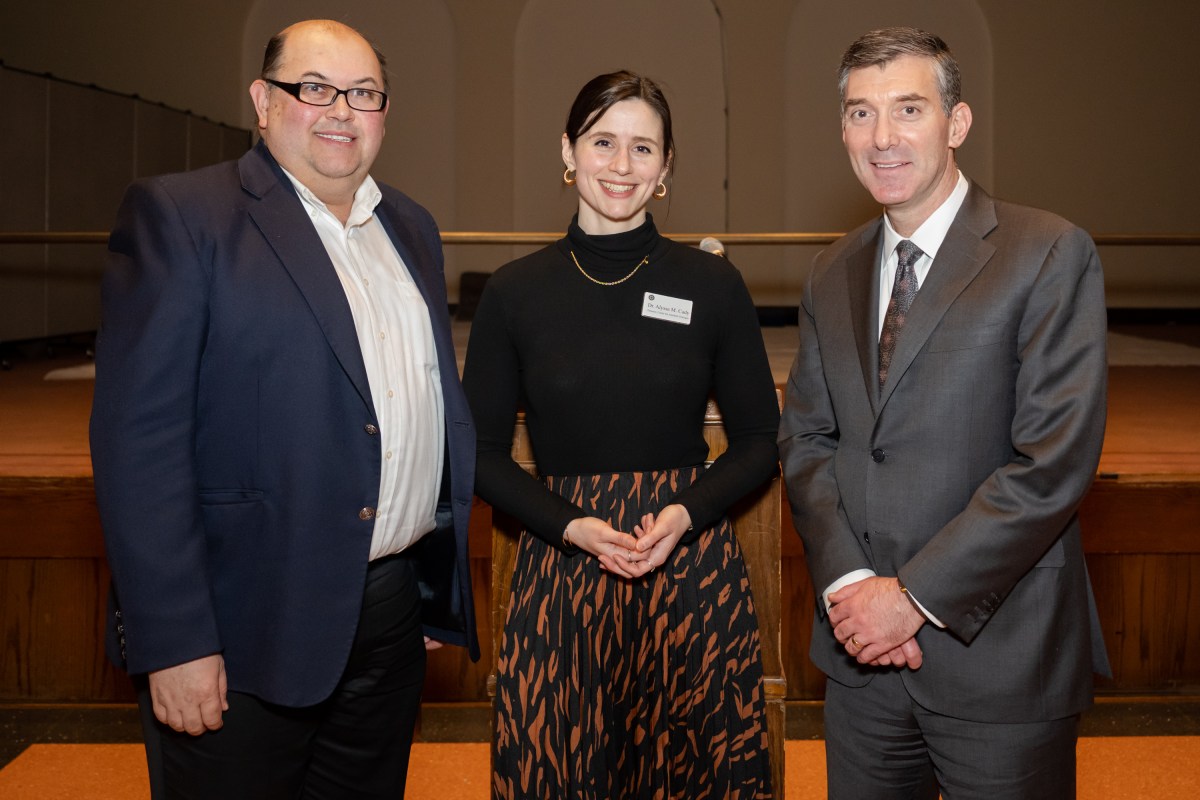
Dr. Seyma Aslan, a board member of PII, explained that hearing from Jewish and Muslim leaders like Rabbi Davidson and Celik and holding the interfaith Iftar dinner at Temple Emanu-El was more important than ever.
“It is important for us to hear our messages from other leaders and be united,” Aslan said. “We are all human beings, and we value human life. We value human dignity, and we value and cherish each other’s each other’s togetherness. I have hope for peace in the future.”
Reverend James DiLuzio, director of Ecumenical and Interfaith Relations of the Paulist Fathers, attended an Iftar for the third time. He thought it was “terrific” that Jews, Muslims, and other faith leaders were coming together amid a volatile political situation.
“Peace is a major drive; it is the goal,” DiLuzio said. “This isn’t a political rally. This isn’t a debate. We focus much more on dialogue and how important that is until we understand.”



